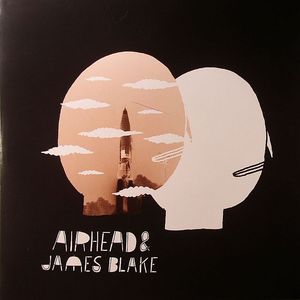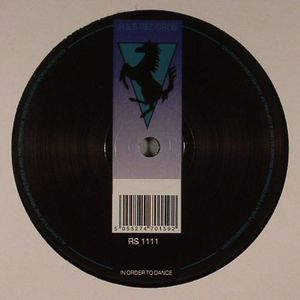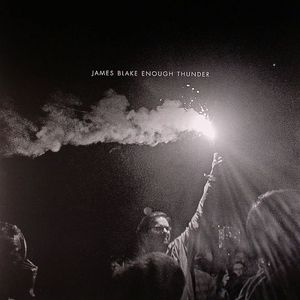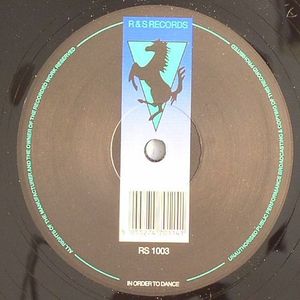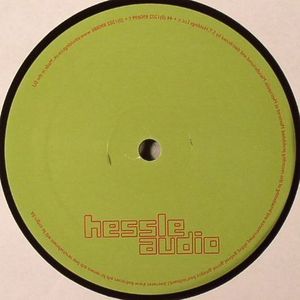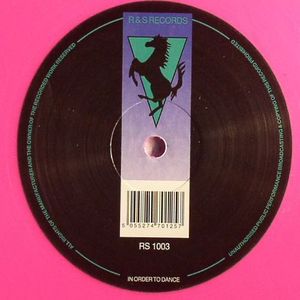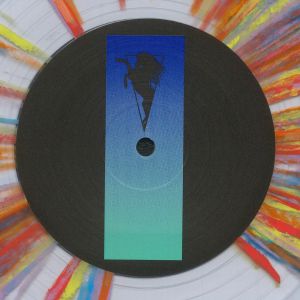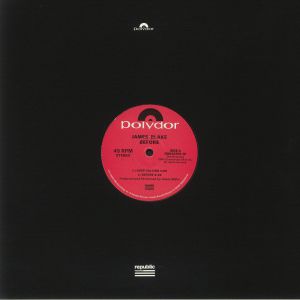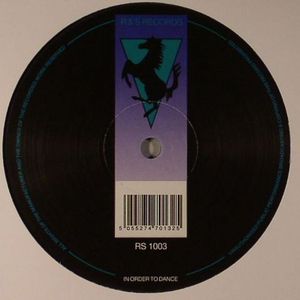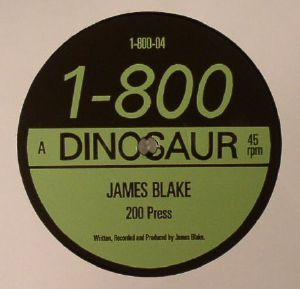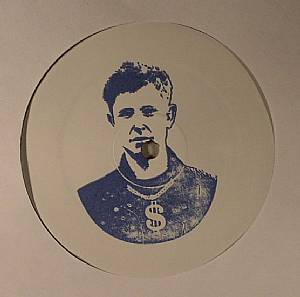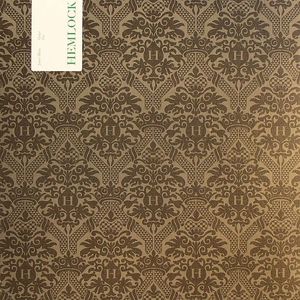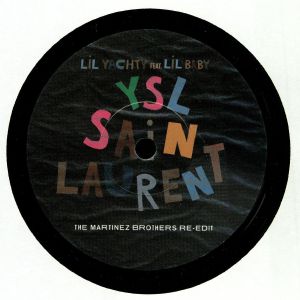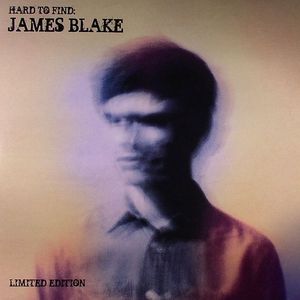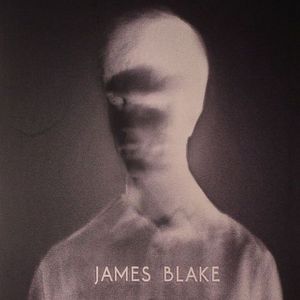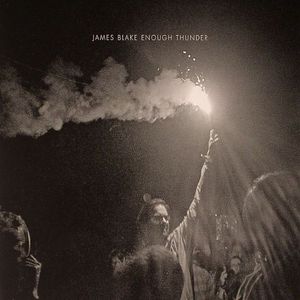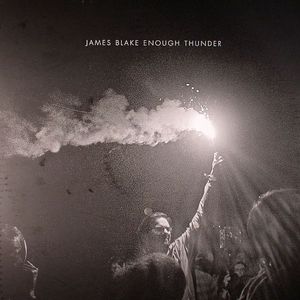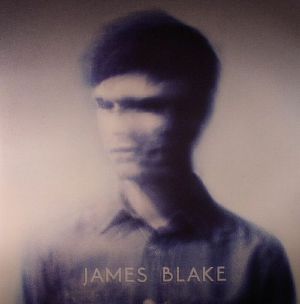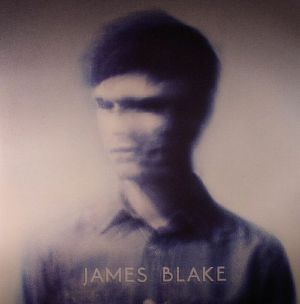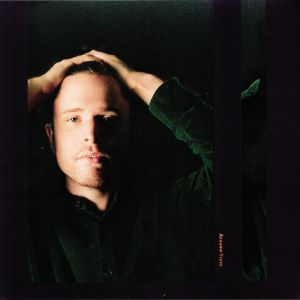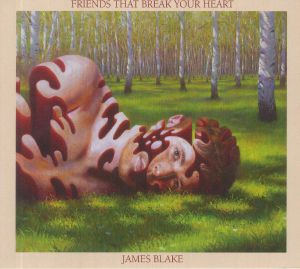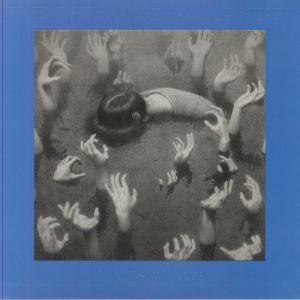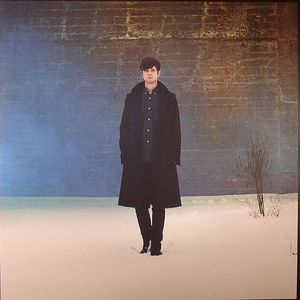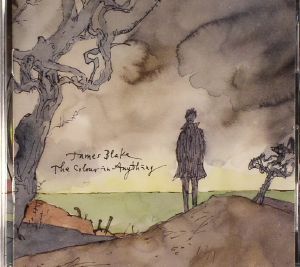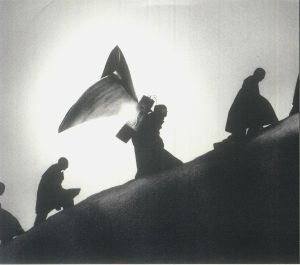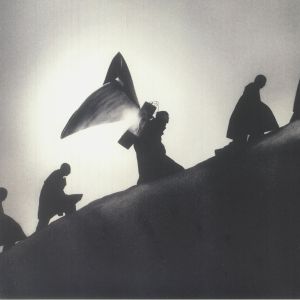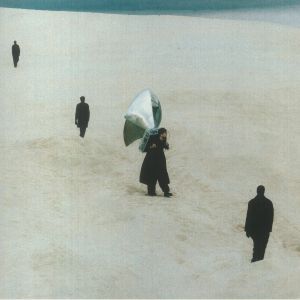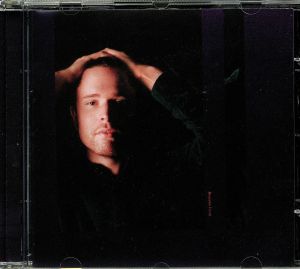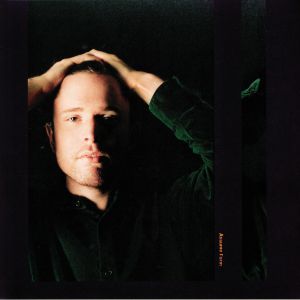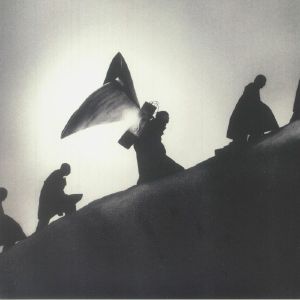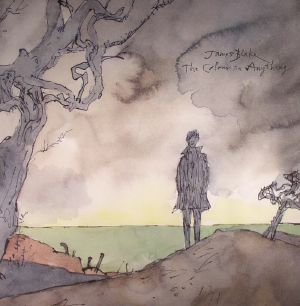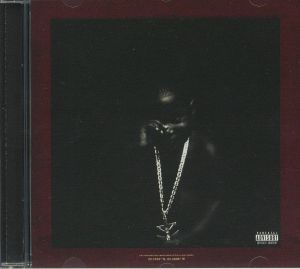Filter
Genre
Stock
Label
Featured
Release Title
Price
Tags
Back catalogue: All genres
Juno's full catalogue of All genres
Singles
Gespielt von: Girls Of The Internet, MR. Scruff
out of stock $7.73
Gespielt von: Baggy [Emotional Pop], West Norwood Cassette Library, Philogresz, Anthony Mansfield, The Please
out of stock $17.67
Gespielt von: Dom Servini
out of stock $25.70
Gespielt von: Ennio Styles, Kr!z (Token Records), EVAN EVANS (Instruments Of Rapture), Lorca, Chris Coco
out of stock $8.83
Gespielt von: Girls Of The Internet, Ennio Styles, Phuture Motion, Red Rack'em/Hot Coins, Emmet Hand (Up & Down radio), Claus, Marco Febbraro, Andy Ticker, Roberto Bosco, RUSTAM OSPANOFF., Kay Suzuki, West Norwood Cassette Library, Robert Luis (Tru Thoughts), MR. Scruff, Dusty / Jazz & Milk, Mixmag, Mary Ann Hobbs, Gilles Peterson, Bleepfunk (Trax re-edited), N-Type, Boywonder, Erdbeerschnitzel, Conforce, Tomorrowland 2010, Dj Yakuza (from Istanbul), Hrdvsion, Felix Bergleiter (Nonetheless)
… Read moreout of stock $7.19
Review: Swift off the back of his eponymous, opinion splitting debut album, the rather statuesque James Blake delivers perhaps the highlight of the set "The Wilhelm Scream" on a rather pristine twelve inch backed with two unreleased compositions. Being exposed to the expansive yet claustrophobic atmospherics of "The Wilhelm Scream" nice and loud on 45rpm flushes you with the sensation the track has found its natural home. The new material further descends into introspective harmonisation with "What Was It You Said About Luck" notable for the arrival of a sumptuous electronic organ. "Half Heat Full (Old Circular)" appears to be the end product of Blake recording from the bottom of a well and is further example of his willingness to fully experiment with sonics despite his currently elevated position. (The witch house fans amongst you might delight in playing this at the wrong speed).
… Read moreout of stock $6.35
Review: Saying James Blake is a man of many talents fits into the .Jessica Alba is attractive' school of pointless comments, but this 10" for Atlas marks the young producer's full vocal debut. And he has quite the melancholic croon too, with "Limit To Your Love" a wonderfully sparse track, with Blake displaying the confidence to allow his vocals to play off against some twinkling piano. A deep, subterranean bass murmur then arrives - and promptly disappears, before returning again sporadically - giving this track an idiosyncratic feel despite the impressive diversity that Blake has already accrued in his fledgling discography.
… Read moreGespielt von: People Get Real, Daniel Drumz, Spacewalker (Balance), Rivet, Kryptic Minds, Dom Servini, Mimi, Cyantific, Frohlocker, Mehdi, YUKARI BB, Humberto Matias, Anthony Mansfield, Far Out Recordings, Juno Recommends Downtempo, Jazz Neversleeps, Lenzman
… Read moreout of stock $6.07
out of stock $6.62
out of stock $7.46
Gespielt von: Boywonder
out of stock $7.19
Covers (Record Store Day RSD 2022) (limited 12")
Cat: 454421 4. Rel: 13 May 22
Experimental/Electronic
Review: Tender-voiced crooner James Blacke dropped this EP of cover songs back in December 2020, but in time for Record Store Day it now gets a wax reissue. Lovers of sad songs rejoined at their mopey here tackling some of these tunes from artists such as Frank Ocean, Billie Eilish, and Beyonce. "It's been a joy to discover new music and new ways of playing songs I've already heard," he said at the time and it's just as nice for us to hear him working with different than usual source material.
… Read moreGespielt von: Juno Recommends Leftfield, Juno Recommends Experimental
out of stock $13.25
Review: James Blake may have gone on to bigger and better things since CMYK was initially released in 2010, but it remains one of the most significant and consistently impressive EPs in his sprawling catalogue. Effectively the EP that made him one of the most hyped producers of the period, it still sounds great all these years on (and now looks better than ever thanks to a "splattered" vinyl pressing. Highlights include the title track, a wonderfully woozy, post-dubstep chunk of melodic bass music bliss, the jazzier, sub-heavy weight of 'Foot Notes', and the sparse, slow-motion sleaze of 'Postpone'. A classic EP that should be in everyone's record collection.
… Read moreGespielt von: Juno Recommends Bass
out of stock $14.92
Review: When its forthcoming release was announced earlier in the year, the Before EP was trumpeted as James Blake's "return to dance music" after years of flirting at the edges of drowsy pop. That in itself is notable, of course, but is it any good? It certainly contains some of Blake's boldest and most bass-heavy workouts for some time. Check, for example, opener 'I Keep Calling', where swooping neo-classical strings, sparkling electronic melodies and Blake's distinctive eyes-closed vocals rise above booming bass and beats that can't decide whether they're inspired by 140, dubstep or house. Then there's 'Before', a glitchy chunk of neo-classical/minimal techno/chamber pop fusion, and 'Summer of Now', whose delicate balance of heart-aching, string-laden blue-eyed soul and dancefloor experimentation recalls some of Blake's most potent early work.
… Read moreout of stock $13.25
out of stock $6.91
out of stock $7.73
Review: The process of a club night turning into a fully fledged label is one that's happened many times before with London crew Night Slugs perhaps the template on how to make the expansion a success. 1-800 Dinosaur sees James Blake and a few friends try to make this transition too, with an irregular anything goes club night spread across London, Paris and Barcelona morphing into a label with Blake himself at the helm for the debut release. Leading proceedings is a dub version of "Voyeur", Blake's most overtly house based production thus far and a highlight of his recent second album Overgrown. This stripped back take sees the spiralling intricacies of his original production come to the fore and it's complemented by the hazy bed of gurgling, foggy textures that is B-Side cut "And Holy Ghost". Given who else is involved in 1-800 Dinosaur it will be intriguing to see where the label goes from here.
… Read moreout of stock $8.83
Review: It's been a while since the last fresh outing of James Blake material, and he surfaces on his plenty active 1-800 Dinosaur imprint with some typically esoteric material that confirms he still exists in his own unique sound world. "200 Press" is a track that evolves with elegance, with an electro thread powering the track while around drift wild bass notes, displaced vocals and occasional chimes, and still it grows into a spellbinding crescendo infected with ghetto swagger. "200 Pressure" takes a more obscure and yet bombastic approach with strange punk inflections, lurid synth intervals and a lot of found sound disturbance. "Building It Still" by way of comparison lets a little of the more classical musicianship sneak in, leaving odd poem "Words That We Both Know" to round off the EP on an ambiguous but personal note.
… Read moreGespielt von: Juno Recommends Bass
out of stock $13.54
out of stock $11.60
out of stock $7.19
out of stock $17.13
in stock $9.93
Alben
Review: James Blake's debut album is undoubtedly one of 2011's most keenly awaited releases, and its arrival via his own (major label funded) Atlas imprint ensures their is no lull in momentum for a producer who enjoyed a watershed 2010 with releases on Hessle Audio and R&S. The results here differ wildly from his previous sonic excursions - gone are the shimmering R&B soaked melodies of "CMYK" and the sheer experimentalism of the Klavierwerke EP, which saw the young Londoner depart from the confines of the dancefloor and enter a realm where there was only a passing reference to rhythm-based music. Instead we are treated to Blake's own yearning, raw voice, delicate pianos and an underlying sense of melancholy. Ubiquitous single "Limit To Your love" and the crackly sonic terrain evoked on "The Wilhelm Scream" are among the most immediately pleasing moments, but there is much to explore here. It's a fascinating opus and surely the catalyst to a long and fruitful career at the top.
… Read moreGespielt von: Ennio Styles, [mxm], Cesare vs disorder, Phat Phil Cooper, Round Table Knights, DJs: Most Charted, Andhim
in stock $29.82
Gespielt von: Juno Recommends Bass
out of stock $22.09
Review: James Blake's Mercury Prize-nominated debut set gets a reboot, this time with a second CD featuring the six tracks that make up his new EP Enough Thunder. Since these tracks sound like a logical extension of the original album - and were, presumably, recorded around the same time - they're a neat fit. Of these new tracks, there's a mix of delay-laden piano ballads ("Enough Thunder", "A Case Of You") and typically maudlin bass music experiments ("Not Long Now", "We Might Feel Unsound"). There's also a strange but rather endearing collaboration with Bon Ivor, "Fall Creek Boys Choir", that features plenty of Blake's now trademark voice manipulation.
… Read moreGespielt von: Moonbeam
out of stock $13.25
out of stock $10.78
Review: The perennially windswept James Blake follows his eponymous and lest we forget Mercury Prize-nominated debut album with a six track EP in the shape of Enough Thunder. There's a definite continuity in sound from that divisive debut here, as Blake dabbles in his trademark delay laden piano ballads on "Enough Thunder" and "A Case Of You" and the maudlin end of bass heavy experimentation via "Not Long Now" and "We Might Feel Unsound". The much vaunted collaboration with like minded transatlantic artist Bon Iver "Fall Creek Boys Choir" is also present, and it features plenty of Blake's now trademark voice manipulation.
… Read moreout of stock $14.09
Review: James Blake's debut album is undoubtedly one of 2011's most keenly awaited releases, and its arrival ensures their is no lull in momentum for a producer who enjoyed a watershed 2010 with releases on Hessle Audio and R&S. The results here differ wildly from his previous sonic excursions - gone are the shimmering R&B soaked melodies of "CMYK" and the sheer experimentalism of the Klavierwerke EP, which saw the young Londoner depart from the confines of the dancefloor and enter a realm where there is only a passing reference to rhythm-based music. Instead we are treated to Blake's own yearning, raw voice, delicate pianos and an underlying sense of melancholy. Ubiquitous single "Limit To Your love" and the crackly sonic terrain evoked on "The Wilhelm Scream" are among the most immediately pleasing moments, but there is much to explore here. It's a fascinating opus and surely the catalyst to a long and fruitful career at the top.
… Read moreout of stock $15.46
James Blake (B-STOCK) (gatefold 2xLP)
Cat: ATLAS2LP (B-STOCK). Rel: 02 Feb 11
Experimental/Electronic
B-STOCK: Creasing to corner of outer sleeve but otherwise in excellent condition
Tep & The Logic
Unluck
The Wilhelm Scream
I Never Learnt To Share
Lindisfarne I
Lindisfarne II
Limit To Your Love
Give Me My Month
To Care (Like You)
Why Don't You Call Me?
I Mind
Measurements
You Know Your Youth
Review: ***B-STOCK: Creasing to corner of outer sleeve but otherwise in excellent condition***
James Blake's debut album is undoubtedly one of 2011's most keenly awaited releases, and its arrival via his own (major label funded) Atlas imprint ensures their is no lull in momentum for a producer who enjoyed a watershed 2010 with releases on Hessle Audio and R&S. The results here differ wildly from his previous sonic excursions - gone are the shimmering R&B soaked melodies of "CMYK" and the sheer experimentalism of the Klavierwerke EP, which saw the young Londoner depart from the confines of the dancefloor and enter a realm where there was only a passing reference to rhythm-based music. Instead we are treated to Blake's own yearning, raw voice, delicate pianos and an underlying sense of melancholy. Ubiquitous single "Limit To Your love" and the crackly sonic terrain evoked on "The Wilhelm Scream" are among the most immediately pleasing moments, but there is much to explore here. It's a fascinating opus and surely the catalyst to a long and fruitful career at the top.
… Read moreJames Blake's debut album is undoubtedly one of 2011's most keenly awaited releases, and its arrival via his own (major label funded) Atlas imprint ensures their is no lull in momentum for a producer who enjoyed a watershed 2010 with releases on Hessle Audio and R&S. The results here differ wildly from his previous sonic excursions - gone are the shimmering R&B soaked melodies of "CMYK" and the sheer experimentalism of the Klavierwerke EP, which saw the young Londoner depart from the confines of the dancefloor and enter a realm where there was only a passing reference to rhythm-based music. Instead we are treated to Blake's own yearning, raw voice, delicate pianos and an underlying sense of melancholy. Ubiquitous single "Limit To Your love" and the crackly sonic terrain evoked on "The Wilhelm Scream" are among the most immediately pleasing moments, but there is much to explore here. It's a fascinating opus and surely the catalyst to a long and fruitful career at the top.
out of stock $25.35
James Blake (B-STOCK) (gatefold 2xLP)
Cat: ATLAS2LP (B-STOCK). Rel: 02 Feb 11
Experimental/Electronic
B-STOCK: Minor tearing on inner sleeves but otherwise in excellent condition
Tep & The Logic
Unluck
The Wilhelm Scream
I Never Learnt To Share
Lindisfarne I
Lindisfarne II
Limit To Your Love
Give Me My Month
To Care (Like You)
Why Don't You Call Me?
I Mind
Measurements
You Know Your Youth
Review: ***B-STOCK: Minor tearing on inner sleeves but otherwise in excellent condition***
James Blake's debut album is undoubtedly one of 2011's most keenly awaited releases, and its arrival via his own (major label funded) Atlas imprint ensures their is no lull in momentum for a producer who enjoyed a watershed 2010 with releases on Hessle Audio and R&S. The results here differ wildly from his previous sonic excursions - gone are the shimmering R&B soaked melodies of "CMYK" and the sheer experimentalism of the Klavierwerke EP, which saw the young Londoner depart from the confines of the dancefloor and enter a realm where there was only a passing reference to rhythm-based music. Instead we are treated to Blake's own yearning, raw voice, delicate pianos and an underlying sense of melancholy. Ubiquitous single "Limit To Your love" and the crackly sonic terrain evoked on "The Wilhelm Scream" are among the most immediately pleasing moments, but there is much to explore here. It's a fascinating opus and surely the catalyst to a long and fruitful career at the top.
… Read moreJames Blake's debut album is undoubtedly one of 2011's most keenly awaited releases, and its arrival via his own (major label funded) Atlas imprint ensures their is no lull in momentum for a producer who enjoyed a watershed 2010 with releases on Hessle Audio and R&S. The results here differ wildly from his previous sonic excursions - gone are the shimmering R&B soaked melodies of "CMYK" and the sheer experimentalism of the Klavierwerke EP, which saw the young Londoner depart from the confines of the dancefloor and enter a realm where there was only a passing reference to rhythm-based music. Instead we are treated to Blake's own yearning, raw voice, delicate pianos and an underlying sense of melancholy. Ubiquitous single "Limit To Your love" and the crackly sonic terrain evoked on "The Wilhelm Scream" are among the most immediately pleasing moments, but there is much to explore here. It's a fascinating opus and surely the catalyst to a long and fruitful career at the top.
out of stock $22.37
Assume Form (limited gatefold green vinyl 2xLP + MP3 download code)
Cat: 774419 0. Rel: 10 May 19
Experimental/Electronic
Gespielt von: Juno Recommends Leftfield, Juno Recommends Experimental
out of stock $39.76
Cat: 385957 7. Rel: 08 Oct 21
Experimental/Electronic
Review: While commercially successful, James Blake's last album, the pop-tinged ballads collection Assume Form, received quite a few negative reviews and was widely seen as a musical misstep. There are no such issues with Friends That Break Your Heart, his delayed fifth full-length. Wisely, he's chosen to play on his strengths, blending his emotive, impassioned and soulful vocals with eccentric electronics, sorrowful piano motifs, stirring orchestration, processed samples and beats that sit somewhere between hip-hop, future R&B and the post-dubstep experimentation that marked out the early portion of his career. It won't win Blake any new fans, but it's undeniably the LA-based Brit's best album in years.
… Read moreout of stock $9.60
Friends That Break Your Heart (180 gram vinyl LP + insert in embossed sleeve)
Cat: 384231 3. Rel: 08 Oct 21
Experimental/Electronic
Review: Remember when James Blake first popped into the common conscience? Or slid, subtly, gently, barely-existing, like a thought without a mind, lost in the vast expanse of silence, trying to be heard? The originality of those early outings will always stand out as defining a moment in UK electronica where things began to change; post dubstep, haunted by the ghosts of garage, pre-techno takeover, genres starting to collapse back in on each other, paving the way today's label-less stuff.
In comparison, Friends That Break Your Heart is a far, far more traditional episode in the story of Blake. Those old fragments of tracks haven't just been glued back together, new parts have been added to create incredibly detailed and - dare it be said - busy collages. It's R&B infused, synth topped, pop balladry influenced electronic future soul. And we're really quite (very) into it.
… Read moreIn comparison, Friends That Break Your Heart is a far, far more traditional episode in the story of Blake. Those old fragments of tracks haven't just been glued back together, new parts have been added to create incredibly detailed and - dare it be said - busy collages. It's R&B infused, synth topped, pop balladry influenced electronic future soul. And we're really quite (very) into it.
Gespielt von: Juno Recommends Leftfield, Juno Recommends Experimental
out of stock $33.51
Friends That Break Your Heart (limited silver vinyl LP in embossed sleeve)
Cat: 385254 4. Rel: 29 Aug 24
Experimental/Electronic
in stock $39.43
Review: Having wowed critics and punters alike with his memorable 2011 debut album, James Blake tries it all over again with his sophomore, Overgrown. Given that his first set was such a remarkable release - a game-changer, in many ways - it was always going to be hard for him to repeat the trick. To his credit, he's mixed things up a little, referencing the wonky hip-hop of his Harmonimix material ("Take A Fall For Me"), intoxicating percussive workouts ("Renegade Lion") and symphonic dancefloor fare (the cowbells and grandiose chords of "Voyeur"). These are joined by his usual array of skewed piano ballads ("To The Last") and intricate oddities ("Our Love Comes Back").
… Read moreGespielt von: Juno Recommends CD Albums, Kito Jempere
out of stock $14.09
out of stock $53.59
Review: Since releasing his second album in 2013, James Blake has become one of the most in-demand artists and producers on the planet, recently appearing on Beyonce's much-hyped "visual album", Lemonade. On The Colour In Anything, it's very much business as usual, with Blake only occasionally veering away from his drowsy, atmospheric, piano-and-vocal template. These variations on a theme - the subtle, 4/4 techno-pop of opener "Radio Silence", the autotune-sporting R&B pop of "I Need A Forest Fire", tactile warmth of "Always", and frankly quite odd accapella throw-down "Meet You In The Maze" - add interest, though Blake remains at his best when concentrating on his most emotion-rich and heart-aching songs.
… Read moreGespielt von: Juno Recommends CD Albums
out of stock $14.09
Cat: 581973 6. Rel: 21 Sep 23
Experimental/Electronic
Review: During recent interviews, James Blake framed Playing Robots Into Heaven, his sixth album, as a kind of return to his club roots - an idea borne out by his decision to structure the album as a kind of imaginary "night out raving". Of course, this is Blake we're talking about, and while the album does lean heavily on the post-dubstep sound that made him famous (which itself drew as much from experimental electronica and outsider pop as dubstep, house or techno), it's not like he's suddenly turned into Ben UFO, Scuba or Mala. It's a highly enjoyable album, though, and one that combines his most familiar and cherished elements - heavily treated, emotive vocals, piano motifs, woozy electronics and ghostly chords - with grooves rooted in techno, house and UK bass. If you're a fan, you'll love it.
… Read more in stock $10.65
Review: James Blake's rise from outsider electronic producer with signature falsetto vocals to major label darling was remarkable. For his next trick he slinks back to his roots with 'Playing Robots Into Heaven' via Polydor/ Republic harking back to earlier long players like 2013's 'Overgrown' and 2010's 'Klavierwerke'. Lead single ''Big Hammer' has glitchy post-dubstep low ends and eerie synths up top over a skittish and stripped back beat full of grime. This album will be accompanied by a headline international tour later in the year.
… Read moreout of stock $29.01
Playing Robots Into Heaven (limited gatefold white vinyl 2xLP + poster (indie exclusive))
Cat: 559688 6. Rel: 21 Sep 23
Experimental/Electronic
Review: Maintaining his trajectory into the upper echelons of alt-pop with carte blanche to do as he pleases, James Blake returns with his sixth studio album Playing Robots Into Heaven. From his brief dalliance with the post-dubstep underground into his sombre strain of electronic indie songwriting, Blake has confounded expectations at every turn and the drop of lead single 'Big Hammer' should maintain that trend. There's no big vocal turn from his delicate voice, but rather a twitchy, sub-loaded beat somewhere on the outer edges of trap with some diced up MC samples, pointing to an exciting foray into unpredictable waters from a truly gifted major league maverick.
… Read moreGespielt von: Juno Recommends Experimental, Emika
in stock $40.61
out of stock $22.65
Review: There's a pleasing contradiction at the heart of James Blake's new album, the much discussed "Assume Form". Lyrically, it's a weighty affair, with Blake musing on mental health and other serious issues. His distinctively emotive delivery remains heart aching and poignant, making each of Blake's utterances sound like they're shot through with genuine sadness. Yet musically, "Assume Form" is surprisingly chipper by the artist's usual downbeat standards, offering a blend of chunky R&B beats, swirling strings, memorable piano lines, crystalline melodies and glassy electronics. It's this fusion of darkness and light that makes it such a rewarding listen, and arguably Blake's most well rounded LP to date.
… Read moreout of stock $6.35
Review: There's a pleasing contradiction at the heart of James Blake's new album, the much discussed "Assume Form". Lyrically, it's a weighty affair, with Blake musing on mental health and other serious issues. His distinctively emotive delivery remains heart aching and poignant, making each of Blake's utterances sound like they're shot through with genuine sadness. Yet musically, "Assume Form" is surprisingly chipper by the artist's usual downbeat standards, offering a blend of chunky R&B beats, swirling strings, memorable piano lines, crystalline melodies and glassy electronics. It's this fusion of darkness and light that makes it such a rewarding listen, and arguably Blake's most well rounded LP to date.
… Read moreout of stock $29.01
Playing Robots Into Heaven (B-STOCK) (gatefold LP)
Cat: 557480 9. Rel: 01 Jan 90
Experimental/Electronic
B-STOCK: Creasing to corners of outer sleeve, product unopened & in excellent condition
Asking To Break
Loading
Tell Me
Fall Back
He's Been Wonderful
Big Hammer
I Want You To Know
Night Sky
Fire The Editor
If You Can Hear Me
Playing Robots Into Heaven
Review: ***B-STOCK: Creasing to corners of outer sleeve, product unopened & in excellent condition***
James Blake's rise from outsider electronic producer with signature falsetto vocals to major label darling was remarkable. For his next trick he slinks back to his roots with 'Playing Robots Into Heaven' via Polydor/ Republic harking back to earlier long players like 2013's 'Overgrown' and 2010's 'Klavierwerke'. Lead single ''Big Hammer' has glitchy post-dubstep low ends and eerie synths up top over a skittish and stripped back beat full of grime. This album will be accompanied by a headline international tour later in the year.
… Read moreJames Blake's rise from outsider electronic producer with signature falsetto vocals to major label darling was remarkable. For his next trick he slinks back to his roots with 'Playing Robots Into Heaven' via Polydor/ Republic harking back to earlier long players like 2013's 'Overgrown' and 2010's 'Klavierwerke'. Lead single ''Big Hammer' has glitchy post-dubstep low ends and eerie synths up top over a skittish and stripped back beat full of grime. This album will be accompanied by a headline international tour later in the year.
out of stock $24.58
Review: Since releasing his second album in 2013, James Blake has become one of the most in-demand artists and producers on the planet, recently appearing on Beyonce's much-hyped "visual album", Lemonade. On The Colour In Anything, it's very much business as usual, with Blake only occasionally veering away from his drowsy, atmospheric, piano-and-vocal template. These variations on a theme - the subtle, 4/4 techno-pop of opener "Radio Silence", the autotune-sporting R&B pop of "I Need A Forest Fire", tactile warmth of "Always", and frankly quite odd accapella throw-down "Meet You In The Maze" - add interest, though Blake remains at his best when concentrating on his most emotion-rich and heart-aching songs.
… Read moreGespielt von: Juno Recommends Experimental
out of stock $47.79
Bad Cameo (limited translucent purple vinyl LP (indie exclusive))
Cat: 602465 931068. Rel: 25 Oct 24
Hip Hop/R&B
Review: Lil Yachty and James Blake's Bad Cameo showcases their fearless creativity, blending Yachty's dynamic vocals with Blake's signature production. Tracks like 'Missing Man' and 'Transport Me' shine with captivating depth, while 'Red Carpet' offers a soulful, gospel-infused highlight. The album's experimental nature, especially on tracks like 'Save the Savior' and 'Midnight', reflects the duo's bold approach, pushing boundaries with each song. Even in its unexpected turns, Bad Cameo remains an exciting exploration of sound. Available on limited magenta vinyl, this release is a fresh, innovative take from two artists unafraid to try something new.
… Read moreout of stock $40.88
in stock $37.30
out of stock $9.98
out of stock $32.03
Gespielt von: Maciek Sienkiewicz
out of stock $35.35
out of stock $30.11

 USD
USD






